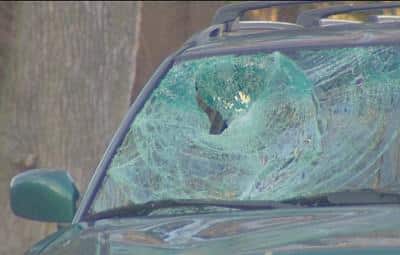There’s a trend in the Anglican Watch inbox, and while it seems innocuous at first, the regularity of the comments makes it clear this is a serious concern. Specifically, we’re hearing from more and more parents and teachers that they do not believe Episcopal schools are taking adequate security measures.
Why so many concerns?
We don’t know, but we surmise several factors are behind the increasing number of complaints about security. These reasons include the following:
- The wave of gun violence nationwide.
- The heated political rhetoric.
- The shootings at Covenant School in Nashville and the shady efforts to hide related details.
- Our coverage of the Grant Solomon case.
We’re also mindful of the shootings at the Episcopal church in Vestavia Hills, Alabama, the arson of an Episcopal church in Texas, and the shooting several years ago at a Unitarian church.
There’s undoubtedly a financial issue as well. Many Episcopal churches, facing plummeting attendance and budgets, may feel they don’t have adequate resources. But most Episcopal schools appear flush with cash, so this is, at best, a partial explanation.
Many measures considered best practices also don’t cost anything, like keeping classroom doors locked during class. Yet ironically, we also notice numerous cases where ostensibly security-conscious school administrators don’t want parents to have to knock to obtain admission to a classroom. But this shouldn’t be an issue if the school follows the two-person rule, as in two unrelated persons with students at all times.
Another issue interfering with school security is the “it can’t happen to me,” routine. Even now, we see schools that think their suburban, low-crime settings make them impervious to problems.
And this situation isn’t helped by problems like those at Covenant Presbyterian in Nashville, where the church failed to report John Perry’s sexual abuse of children for two years and is actively trying to suppress details of the recent shooting. The latter does no one any favors, for it prevents identifying gaps or failures that may have played a role in the shooting.
Another issue that may impede efforts to improve security is abusive clergy who try to shut down criticism via fabricated claims that their critics are mentally ill or violent. There are several high-profile cases of this, including:
- Liam Goligher, the pastor of Tenth Presbyterian in Philadelphia, has falsely accused former elder Phil Snyder of threatening the congregation.
- Covenant Presbyterian in Nashville has falsely accused Austin Davis of being threatening and has ignored our requests to reconcile. (Full disclosure: both Snyder and Davis are friends of Anglican Watch editor Eric Bonetti.)
- Grace Episcopal Church in Alexandria, Va., where former rector Bob Malm falsely accused Anglican Watch editor Eric Bonetti of being threatening, violent, mentally ill, and a domestic terrorist. Malm made these claims despite Bonetti’s flawless criminal record, the fact Bonetti is fully polygraphed and has passed a law enforcement psychological exam.
- Grace Chapel in Nashville, where both the school and the church (legally separate entities, as their attorneys are eager to point out) failed to report ongoing child abuse in the case of Grant and Gracie Solomon.
- St. Paul’s in Alexandria, Va., where former senior warden Anne Ayres appears to have made millions from the torture of detainees in the so-called war on terror.
- Rock Church in Virginia Beach, Va., where pastor John Blanchard had members arrested for protesting an alleged pedophile at the church.
- Bishop Chilton Knudsen and her deplorable role in claiming that parishioner David Duggan was a threat. While David and this publication have views that differ on same-sex marriage, we have never found him to be anything but polite.
And let’s not forget Heather Cook, former suffragan bishop of Maryland, who killed cyclist John Palermo in a DUI and claims that part of her repentance is sharing her experience — yet has declined the invitation to do so on Anglican Watch.
Thus, the abuse of the legal system by these members of the clergy and their appeal to discredited 1950s stereotypes associating mental illness with a propensity for violence clouds the already murky desire to be open and welcoming with the need to be conscious of security.
Moreover, these cases underscore another critical point: the most dangerous person in the room may not be the stranger but the clergyperson or lay leader. As in, “We’ve seen the enemy and it is us.”
We often see that insiders perpetrate embezzlement, rape, and child abuse. Or as Aaron Solomon says, “It’s all about who you know.”
And, of course, the hypocrisy of these so-called leaders makes it impossible to have a conversation about security. If you can’t trust your priest, pastor, or senior lay leader to tell the truth, the conversation invariably shifts to inconsequentia.
For clergy seeking elders, vestries, or church boards that are nothing but rubber stamps, that may be the ideal arrangement: keep it inconsequential and don’t ask questions.


Leave a Reply